-
An Apology Primer
This time of year can seem like a replay of familiar words: apology, pardon, forgive. But, what does it all mean, how does it work, and which comes before which?

Last Saturday night marked the beginning of the week before the Jewish New Year, of Rosh HaShana. The name of the special late night service is Selichot, which means ‘pardons’ in Hebrew. This is one way the Jewish New Year differs from a secular new year: we accept that we have made errors, reflect on how we may have missed the mark in the past year, apologize, and ask for forgiveness. We do this so that we can move forward with newer, better, attitudes and behaviours. The word for this turning around from a problem behaviour to a new, improved one is, Teshuva, which literally means, turning around.
But, really, who are we apologizing to, and what is most important: the apology or forgiveness or the resolve to change? and for whom is our apology or forgiveness meant?
These are questions behind centuries-old beliefs and practices in Judaism; are they still relevant to today? The answer is a resounding, Yes!
Here is an modern example of how apology, forgiveness, and change are interrelated:

A friend has run a monthly group program for a non-profit organization for many years. Unfortunately, the office administrators, every month in all those years except for 2 or 3 of them, advertise the program incorrectly to the hundreds of it members on the mailing list. That is, the date or time or is wrong, or it just doesn’t get advertised. The errors are different every month. Every month, my friend has to ask the office to correct the problem(s). And, every month the office administrator apologizes, only to make errors again the next month. Conversations initiated by my friend to come to a better outcome with the office provide no change, and the errors continue to go out.

This reminds me of the ‘Peanuts’ cartoons, in which Lucy perpetually tricks Charlie Brown into believing she will hold the football in place for him when he goes to kick it. I hate to think of adults behaving the way Lucy does, or for that matter, as Charlie Brown does. This will be an endless, shameful, dynamic unless one of them resolves to change, or to turn around, in Teshuva, and be released from this endless cycle of victim and perpetrator.

Teshuva is really not as complicated or difficult as we might think. Knowing the territory, having a map, makes it more attainable. We first have to acknowledge that there is a problem. In the case of my friend, this was pointed out to the office, and Charlie Brown also discusses his concerns with Lucy. The next step would be for the office administrator or Lucy to recognize or care about how their behaviour has caused hurt or harm to someone else. An apology may go out, and even words saying it won’t happen again, or even what they will do differently next time: but the real apology happens when the hurtful behaviour stops.
Sadly, Lucy keeps tricking Charlie Brown, and the office keeps tricking my friend.
So, what do we do when the behaviour continues? And, do we forgive someone simply because they said, ‘I’m Sorry’, but their behaviour did not change? There is more to information about this in our road map.
I have bookmarked some useful readings with a very modern understanding of the importance of making real inner change as an integral part of apologizing:
- At The Well: Sorry, Not Sorry: The Real Path to an Apology By Hanna Perlberger
- The Jewish Woman: Saying ‘I’m Sorry,’ and Meaning It By Samantha Barnett
- The Times of Israel: Don’t just casually say sorry, focus on changing in the future Eytan Saenger
It is important also to note that apologies may not come your way, even if you believe they are due, and that is okay.
The other party may not understand how to apologize, or feel uncomfortable, or embarrassed, or not know how, or have other barriers to owning their error. Or, it maybe it is that no error was made at their end. Whatever the reason, it can be a very long time to wait for an apology that never comes, and a long time to be on hold in a queue that is now taking up your time and attention. This is where forgiveness may help you to move on.
Moving to forgiveness does not require an apology. There may be a myriad of reasons why you didn’t receive your apology, and thinking of what possibilities there are might be useful. It is also important to look for a change in behaviour instead of the words of apology.

A friend once told me that the only ones who like to be changed are babies.
It’s true. You can’t expect to change others, but you can change yourself. Think of how football might be for Charlie Brown if he asks Lucy do something other than hold the football for him, or if Lucy apologizes and then honestly and consistently holds the ball properly for him to kick.

Notice yourself. What can you do to change so that if put in the same situation again, you have a plan that allows you to replace a cycle of errors or harm with success. Reflecting on what went wrong and how you can change, can release you from burdens you no longer wish to have.
Think about what you might need to change or let go of from this past year. If appropriate, apologize to yourself or to the other person. Then, think about what you would do if the same situation arose again: how would you handle it next time? and then employ the new pattern.
Know that forgiveness of self and others comes when change happens for the better: for growth, for health, and to make the world a better place for everyone.
Shana Tova, A Good New Year…Susan
-
Work on What Has Been Spoiled
Originally published on 5 October, 2022
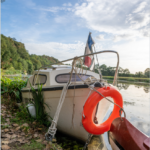 As the waters of the COVID-19 pandemic’s tsunami of disruption recede, our world of experiences and expectations have changed, too. What had formerly been familiar now has an uncanny cast to it; favourite places for entertainment, work, travel, recreation, places of worship, and healthcare institutions look and operate unlike they ever used to, even as restrictions to access are lifted.
As the waters of the COVID-19 pandemic’s tsunami of disruption recede, our world of experiences and expectations have changed, too. What had formerly been familiar now has an uncanny cast to it; favourite places for entertainment, work, travel, recreation, places of worship, and healthcare institutions look and operate unlike they ever used to, even as restrictions to access are lifted.So many of us sat through this pandemic, chafing at the bit to go back to having things the old way, the familiar way: the way we, and our ancestors before us, made them. But, these things are forever changed, in our memories, in our minds, in our emergence back into them post-pandemic.
Rather than trying to fit all the pieces back in, as they once were, imagine instead that we had been afloat in an Ark, such as that of the Biblical Noach. We and all the living beings gathered into it, have been weathering a Great Flood. In Noach’s Ark, do you think that the passengers all imagined, in their human and non-human minds, that things would be just the same once the rain stopped?
Now, imagine yourself after a similar pandemic great flood, jostled and perhaps cast afloat: and the waves have relaxed. Deposited by a gentle surf, face down upon a wet sand of some strange beach; exhausted, grateful for the solid land, confused. Yet, the landscape is not unfamiliar.Humanity has been tossed about. Regardless of our medical and scientific experts attempts to control Nature’s emergent virus-child, the Novel Coronavirus, it has been an exhausting two-plus years for those of us who have survived. We mourn the losses of loved ones, of means of livelihood, neighbourhoods, sources of supplies and food, and importantly, patterns and rituals that we had always relied upon for comfort and support.
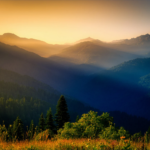 Our earliest traditions were arose from these reliable things of Nature: the sunrise, the sunset, the seasons. Weather patterns of the ancient lands where our beliefs and lore were birthed, are now, too, washed over with sand and debris. We dig to find and restore them. But they are weighted down, broken in places, and entangled with seaweed.
Our earliest traditions were arose from these reliable things of Nature: the sunrise, the sunset, the seasons. Weather patterns of the ancient lands where our beliefs and lore were birthed, are now, too, washed over with sand and debris. We dig to find and restore them. But they are weighted down, broken in places, and entangled with seaweed.
© Susan J Katz 2018 When I lived in the remote desert of the American southwest a few years ago, my family put up a stake of money for a lovely Oneg Shabbat dessert reception at the synagogue I attended, in honour of a significant birthday milestone. I was going to chant the haftarah, the weekly reading from the book of Judges, that I had chanted at my Bat Mitzvah so many decades before. On the day of the Oneg, I awoke at sunrise to get ready for the 1-1/2 hour drive into town to the synagogue. Looking out the window of my mobile home, I saw that a torrential downpour had come down overnight.
Knowing how fragile and exposed the desert roads were, I checked the news and internet for word about the possible closure of the one road we had that ran 25 miles before connecting to a highway and the rest of the world. There was nothing from the department of transportation or any other news, so I got dressed and drove.
After the first 10 miles I suspected the worst outcome to the road caused by the storm because so many trucks and cars were heading back into town. But, I kept on going: because I had to get there to chant the Haftarah and celebrate with my friends and indulge in all the goodies my family had arranged for me.
After all, I reasoned, I had my little truck, and experience driving in slush and snow and unmarked roads in Alaska and as a Forest Ranger – and there was no report of a road closure, no signs on the road to go back: Just those darned vehicles heading towards me and back into town. Of course, there it was: after driving 22 of the 25 miles towards the highway the road was completely gone.
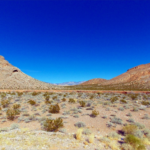 The desert had completely swallowed up the road. Wet sand, Brittle Bush and Cacti sat quietly there in what once was our lifeline out to the world, as if they had been there all along. I saw two police cars, real tough Hummers, slipping sideways in the muck and finally giving up, almost like a pair of mud wrestlers trying to slog through to the finish. It made me feel a bit better, that I’d made it as far as they did in my little truck, but it was also clear that after driving 45 minutes already, then having to turn around and drive 45 minutes back, then risk another 2 hours over the mountainous back route, if it was even open, I was going to miss my lovely special Shabbat event.
The desert had completely swallowed up the road. Wet sand, Brittle Bush and Cacti sat quietly there in what once was our lifeline out to the world, as if they had been there all along. I saw two police cars, real tough Hummers, slipping sideways in the muck and finally giving up, almost like a pair of mud wrestlers trying to slog through to the finish. It made me feel a bit better, that I’d made it as far as they did in my little truck, but it was also clear that after driving 45 minutes already, then having to turn around and drive 45 minutes back, then risk another 2 hours over the mountainous back route, if it was even open, I was going to miss my lovely special Shabbat event.I drove back and passed our little desert airport, wistfully thinking about running into the little terminal shack and commandeering some pilot who might be sipping a quiet cup of morning coffee to fly me out to the synagogue, which shared a fence with a large airfield anyway. Energy pulsed through me to do that; but I knew the reality was that Nature had been busy overnight, and that although I would not be there, my friends would be enjoying the spread of delectable food and decorations on my behalf. Finally, the phones were working again, and I was able to get a call out to one of them and let him know about the road washout. As urbanites, it would be harder for them to visualize how it was even possible for a road to completely disappear, but when you live in the wilderness, deferring to Nature is the rule.
So, what is the subject of my post, ‘Work on What Has Been Spoiled’?
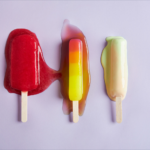 As we pick ourselves up from those pandemic years of being tossed about in waves of Coronavirus and slog up the beach, now castaways looking for something familiar, we are each likely carrying old expectations of what should be happening, or how things will look. But we all can see – they aren’t the same. We can try to force things to go as expected, as they had been before the flood, just as I had thought by running my little truck through the hopelessly washed away desert road to get to my duties at synagogue and my party. My idea of hijacking a pilot and flying into town would most likely have downgraded to me stealing an airplane and flying it, without any training in doing so.
As we pick ourselves up from those pandemic years of being tossed about in waves of Coronavirus and slog up the beach, now castaways looking for something familiar, we are each likely carrying old expectations of what should be happening, or how things will look. But we all can see – they aren’t the same. We can try to force things to go as expected, as they had been before the flood, just as I had thought by running my little truck through the hopelessly washed away desert road to get to my duties at synagogue and my party. My idea of hijacking a pilot and flying into town would most likely have downgraded to me stealing an airplane and flying it, without any training in doing so.The most likely outcome of such persistence in working things that have been spoiled, is to get stuck, get mad, and become very tired or fail. These days, people attempt to avoid this pain or failure with what is known as a ‘hack’. For example, taking a shortcut by making an illegal left turn onto a one-way street and then expecting everyone to get out of the way, and even blaming the law-abiding drivers of causing the resulting traffic jam.
As a friend put it, for the past many years we have been living in the, “I Got Away With It” culture.
If the ‘hack your way through and get away with it’ strategy is not appealing, I applaud you.
Our ancient wisdom texts have lovingly preserved stories for us to see and learn how to responsibly and morally respond to change. We can find a new way in our new world.
 An ear worm, a loop of rhythmic words, has been circulating in my brain the past few weeks: it repeats, ‘Work on what has been spoiled’. In fact this is one name for Hexagram 18 of the I Ching, the ancient Chinese Book of Changes. ‘Decay’ or ‘A Can of Worms’ is another translation for this Hexagram’s name. The I Ching is a two thousand year old book of wisdom from East Asia, created to help us understand how to determine our actions in the midst of life’s constant and inevitable changes. From learning how to understand imagery and metaphor, rather than rely upon analytical thinking and problem solving, we can find out where we are in a situation, and thus make decisions on how to proceed.
An ear worm, a loop of rhythmic words, has been circulating in my brain the past few weeks: it repeats, ‘Work on what has been spoiled’. In fact this is one name for Hexagram 18 of the I Ching, the ancient Chinese Book of Changes. ‘Decay’ or ‘A Can of Worms’ is another translation for this Hexagram’s name. The I Ching is a two thousand year old book of wisdom from East Asia, created to help us understand how to determine our actions in the midst of life’s constant and inevitable changes. From learning how to understand imagery and metaphor, rather than rely upon analytical thinking and problem solving, we can find out where we are in a situation, and thus make decisions on how to proceed.I saw this cartoon and it caught my attention:
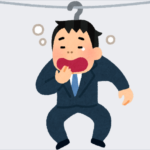 The figure of a sleepy man yawning on his way to work on the subway, suspended from the hanger still in his dress suit, is supposed to be funny. And, isn’t it so true? Boredom has set in where once competition and higher education had urged young minds to excel, to think outside the box and be curious and inventive and creative and courageous. Education meant to open our minds is now just an ornament to put on a job resumé to gain employment and go back to sleep.
The figure of a sleepy man yawning on his way to work on the subway, suspended from the hanger still in his dress suit, is supposed to be funny. And, isn’t it so true? Boredom has set in where once competition and higher education had urged young minds to excel, to think outside the box and be curious and inventive and creative and courageous. Education meant to open our minds is now just an ornament to put on a job resumé to gain employment and go back to sleep.Physical and mental challenges are an essential part of maturation and becoming responsible and ethical; and sadly, today, challenges are often met by getting by without them.
This is the underbelly of ‘Work on what has been spoiled’. Teaching your child how to do the hard work of their math homework rather than hacking a grade by doing it for them, is the way to nurture independence and engagement, rather than creating a bored working stiff, as in the cartoon above.
When we do these undisciplined, unsanctioned hacks, things decay, become decadent: instead of good food, the food cans now contain maggots.
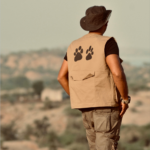 I once met with a patient who had acquired a life threatening infectious disease. He was hospitalized, with no friends or family. He told me that he had been raised in one of the wealthiest families in the region, spent his time partying on the family’s yachts and skiing in the Alps and Aspen; all those things that were just the norm for him. They had servants and he never had any responsibilities. As a young man he decided to get a remote cabin in the mountains and live like the film character, Jeremiah Johnson, a backwoodsman, along with his girlfriend.
I once met with a patient who had acquired a life threatening infectious disease. He was hospitalized, with no friends or family. He told me that he had been raised in one of the wealthiest families in the region, spent his time partying on the family’s yachts and skiing in the Alps and Aspen; all those things that were just the norm for him. They had servants and he never had any responsibilities. As a young man he decided to get a remote cabin in the mountains and live like the film character, Jeremiah Johnson, a backwoodsman, along with his girlfriend.Although still young, his health began to fail: his earlier, carefree partying days of sharing drug needles and bodily fluids with others had given him some diseases that weakened him so much that his leg broke while out hiking. His dog helped him get back to the cabin, but his girlfriend abandoned them. So, there he was, alone and very sick. Eventually some neighbours brought him into town and he made it to the infectious disease ward for treatment.
He said he had no skills for living: everything had been given to him with no challenges his whole life. He saw the folly of shirking any education in even the basic skills for taking care of oneself all too clearly.
Recognizing where one is at is the first step toward finding your way forward. This patient was ready and eager to begin work on what had been spoiled.
This topic is relevant to the New Year of Autumn. We get a chance, before or even after, finding ourselves lost and injured in a snow bank, to reflect on what we have learned this past year, and how we can move forward better in the new one. That patient had been raised to shirk responsibilities and assign blame to others for any problems or shortfalls. Now, in his solitude, he could see that he alone was in charge of his decisions after all, not others. Saying “I can do better and want to be responsible” was the most powerful thing he could do for himself.
The Hexagram, ‘Work on What Has Been Spoiled’ is not about what has been Spoiled: it is about Work. Just as moving forward into the world after the pandemic is not about what the Coronavirus did to us; it is about the honest work, without blame of oneself or others, and of adapting to a changed world.
Work is hard! with guidance from our ancestors and choosing to engage with the lessons in their books of wisdom, we, too, can see how to move forward, with awe and wonder and pride, and with reflection.
May your New Year be filled with growth, with wisdom from our elders, and a promise for the future.
Shana Tova…Susan J Katz
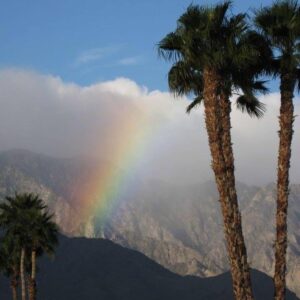
-
And You Want to Travel With Her
The past few days have been filled with music and words, sacred lyrics and meanings, which are emerging from the soil that has lain dormant for the past few years.
Maybe, this idea of dormancy is just with me, in my personal experience of slipping down into the pandemic in a strange new city, before I could ever even find the names of people or places around me.
And, maybe this awakening from dormancy is with everyone around the globe, all of us who have endured and survived the pall which fell upon humanity beginning in March of 2020.
Not all of the planet suffered: without the rampant, ceaseless and nauseous flow of automobiles, factory exhausts and emissions, and general noise that humans must make everywhere we go – honking horns, shooting weapons, driving jackhammers to dig up what was only last week paved, and blowing up mountains to extract ore and push in new highways – the other forms of life living on the planet had room and time and space to emerge, fly, swim, flock, procreate, and take up space.
Did we notice, though?
Most of us were busy using our brains to harness technology so that we could learn to order everything we need online and have our social lives and children’s schooling take place entirely that way. Being creatures who value tangibles such as grades and report cards, we did not factor in the much more important part of school than reading ‘riting, and ‘rithmetic: developing age-appropriate social skills.
But, here we are. We have vaccinated ourselves so that we can once again emerge from hiding from one another and go back to work, school, and caregiving. We bump into each other awkwardly, now in 3D, where we can’t just text or emoji our ideas and feelings to a differently coloured bubble on a screen and engage with non-verbal physical cues. You know, those social and interpersonal communication skills we learned in grade school, which, as pointed out above, our children missed out on.
And the birds and fish and polar ice caps and clean air and quiet that filled in while we were hiding away from each other, are being again overcome with the sound and the fury of human beings emerging, just as noisy and dangerous as we were before March of 2020, with noise and dirt and just as ignorant to the opportunities to listen and learn, as ever.
Instead, I see one big Temper Tantrum happening on this planet. We want it, and we want it now: the revenge travel, the revenge oppression of the oppressors, to cancel culture and overthrow governments, and abolish the the holy books and their millennia of accrued wisdom of the human condition. And why? Because nothing works anymore, and nothing is the way we want it.
It’s true, nothing is the way anyone wants it. We can’t stroll downtown and find the same lively scenes of arts and culture and shopping and commerce and restaurants and green spaces, because no one went down there to work and become culturally enriched for almost three years. Now, civic centres and universities are sites of social unrest, protests, confrontation, and homelessness. Offices are vacant, pedestrians and cyclists are struck by careless drivers, and there just aren’t enough social service resources to address all this anger and discontent and flaunting of established laws that only a few short years ago meant something. Now, everyone is a victim. Or a perpetrator.
This is so sad. Here, humanity has had a once in a millennium opportunity to emerge with a clean slate, only rivalled by the Great Flood that so many cultures have written about in their origin stories. In which everything that was known or understood was wiped out, everyone sheltered in place until it was over, and then slowly, tentatively, emerged.
Perhaps we are at the stage when the dove that the Biblical Noach sent out is coming back, because there is not yet any dry land with a tree for it to perch upon. Perhaps we are at one step before that, where anger and ignorance of the earth and its creatures had not yet fully been drowned out by the risen waters.
I think of Leonard Cohen’s poetic song, ‘Suzanne’. I think of the lyrics,
Now, Suzanne takes your hand and she leads you to the river
She’s wearing rags and feathers from Salvation Army counters
And the sun pours down like honey on our Lady of the harbor
And she shows you where to look among the garbage and the flowers
There are heroes in the seaweed, there are children in the morning
They are leaning out for love and they will lean that way forever
While Suzanne holds the mirrorDo you see Suzanne?
I do.
She is there, like us all, going out for the day to pick among the angry workers, selfish drivers, desperate people cutting each other off; to protesters telling us what to think or do, to the banning of library books, and the making of conversations where no one is listening, and no one is right, and everyone is wrong – and she is also finding flowers.
Suzanne shows you where to look among this mix of garbage and flowers, because there really are heroes amongst us who carry on with pride and honour despite harms and pettiness; and our children do go out in the morning.
You can see them – they are those of us who find ways to go about the day with love in our hearts, the children whose glad eyes gaze up to the morning sky and still know the sun and birds and subtle inspirations – there will always be people like this, and I feel safe and inspired and comforted.
-
Inspired with Pride

It’s June and in many, many communities around the world it is also Pride Month. So I thought I would take time today to share some insights, inspired by what it means to have LGBTQ2S+ Pride.
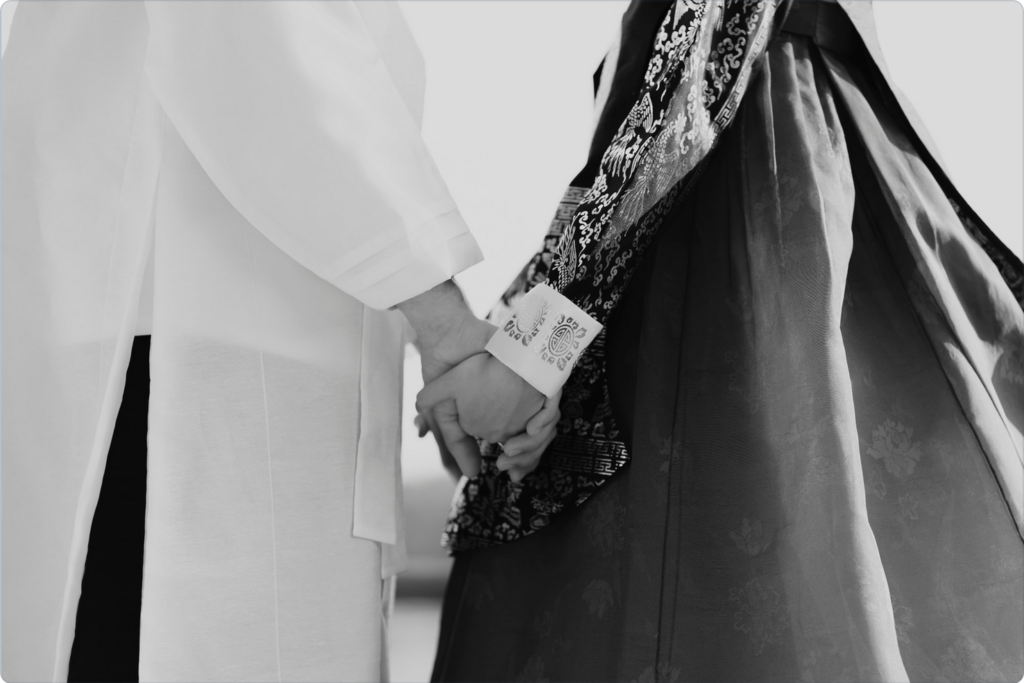
My thoughts go to the joys of relationship, and to the primary reason G_d created a partner for the first human, Adam (whose name is also the Hebrew word for Earth) so that he would not be alone. The instruction to ‘be fruitful and multiply’ comes later in Torah. Because having a mate precedes procreation, ending loneliness precedes procreation in importance. In other words, a close reading of Torah allows us to celebrate a domestic partnership or marriage, without any mention of the partners’ genders.
The reason for Pride Month goes back to 1969, when New York City police raided the Stonewall Inn, a gay club located in Greenwich Village in New York City. The police roughly cleared out the bar, which in turn led to six days of protests and violent clashes with law enforcement, and eventually served as a catalyst for the gay rights movement in the United States and around the world.

Over the millennia, gays have been tortured and murdered as abominates, seen as violating religious or social contracts among other reasons. At the Stonewall Inn, the persecuted men prevailed, and to honour their victory and to encourage all Queer (LGBTQ2S+) people to have Pride in their gender diversity, communities removed the barriers and opened themselves up to the vast intellectual, financial, and cultural richness that was already taking place by closeted Queer people. Now, parades, flags, and welcoming signs on businesses and from politicians are institutionalized by the annual Pride Month observances.
Today, I honour and celebrate domestic partnership in all of its varied forms. I want to elevate the divinely inspired imperative to have a mate, regardless of gender.
Relationships of any sort require work. To be in love and have a partner or spouse is the most wonderful thing, but being in love or marriage is a beginning, and not a complete relationship.

Members of a pair also need to know how to be individuals and how to disagree. This takes thought and work, and a willingness to disclose or accept uncomfortable information and behaviours from an intimate partner. We aren’t usually directly taught how to do this when we are growing up; and for many, our families of origin did not provide good role models to learn from. I want to encourage you to consider doing this hard work of navigation in relationship. Certainly for yourself, and hopefully your partner will be willing to learn, too.
Another potential outcome of relationship, unfortunately, may be that it goes beyond disagreement in a harmful manner. This brings up the uncomfortable but important topic of Intimate Partner Violence (IPV). The potential for, or signs of, IPV are not often mentioned when we learn about domestic partnering and intimacy, and especially so for same-sex couples.
I went online to search for same-sex IPV resources, and found quite a few for straight and Queer relationships. Few of these made connections to spiritual values, though. I looked for examples of IPV in Torah. Some pointed to the Gen:21 story of Hagar, who was certainly a victim of domestic violence. I don’t know that this was intimate partner violence between Sarai and Hagar. But certainly domestic violence within a household and between same-sex members who were intimate partners with the same man, Abraham.
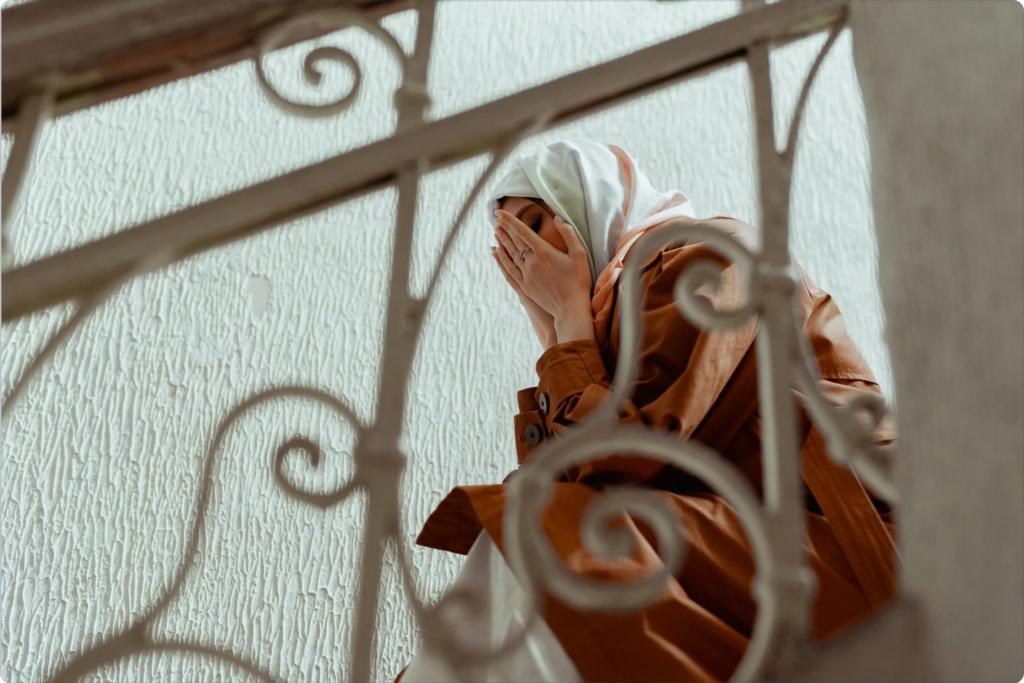
Then we have heterosexual intimate partner violence, and that would be the Gen:34 story of Dinah, who was raped by her suitor, and then avenged by her brothers. And then we have other stories, such as about the Sotah, in which a man could impose an ordeal upon a wife by claiming that he felt she was being unfaithful, although the Sotah test was never given to an unfaithful husband. That ordeal is described in detail in the recent Torah portion, Nasso (Num:4).
In the Tanakh (Hebrew Bible), especially in Psalms and Prophets, there is quite a bit of imagery of violence against women, who are characterized as ‘unfaithful’ wives. The prophets were not speaking literally about human women, but are using commonly accepted beliefs about wives and women as metaphors to illustrate how a vengeful (male) G_d could perpetrate punishments on the unfaithful people of His covenant, recognizable as a husband and a wife scenario. It was commonplace for people to understand a dynamic of a husband taking out his anger on his female domestic partner. Sometimes a re-reading of familiar texts with eyes and minds open to new information, can be helpful in understanding how pervasive a cultural acceptance of IPV may be.
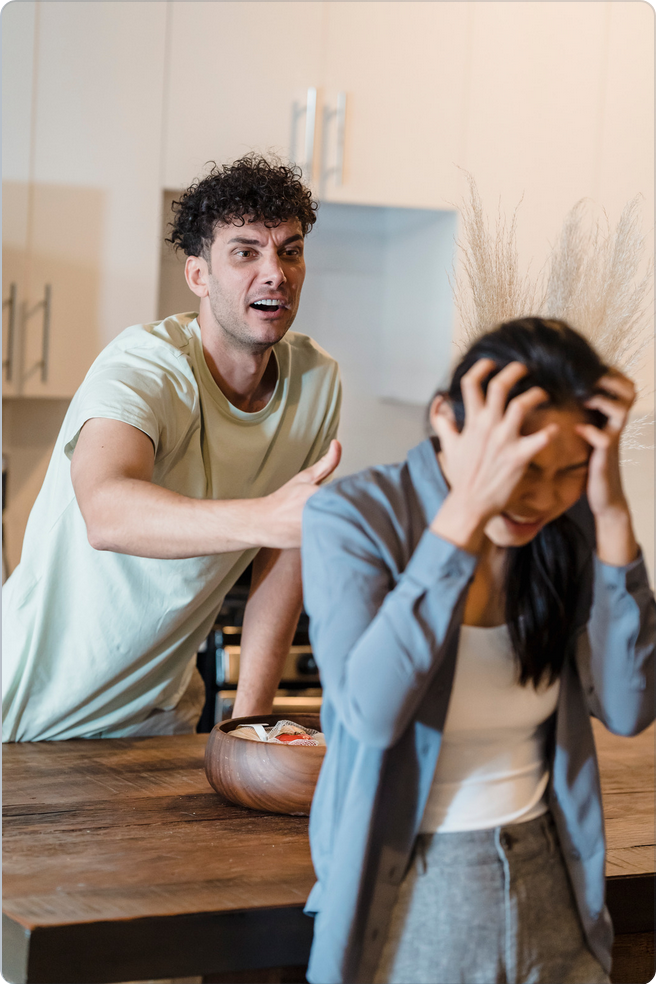
When we’re experiencing conflict or harm in our own household, for privacy, we often won’t want to speak about it with others: especially if it is acceptable in of our sacred texts and liturgies. The canons may be espoused from the lecterns in our spiritual community, thus also making it complicated to separate faith from personal experience.
Let’s look as well, then, at same-sex IPV, in the best of wishes that this knowledge will empower your celebrations of safe and lasting love during Pride month.
As it is said, knowledge is power. Now this column is not strictly for those who are in same-sex partnerships. This column is for everyone. You may not be in a same-sex relationship and may have identify as a straight, cis-male or cis-female person. However, almost everyone knows others, whether a co-worker or a friend or a family member, who is not.
Same-sex IPV is as common as straight IPV, but research shows that it is historically under-reported, in part due to stigmatization by those who are responsible for providing support, or by pressure from a community to not go outside of it for help. For example, in the past, IPV in some Jewish communities was under-reported due to pressures to not disclose to or reach outside the community.
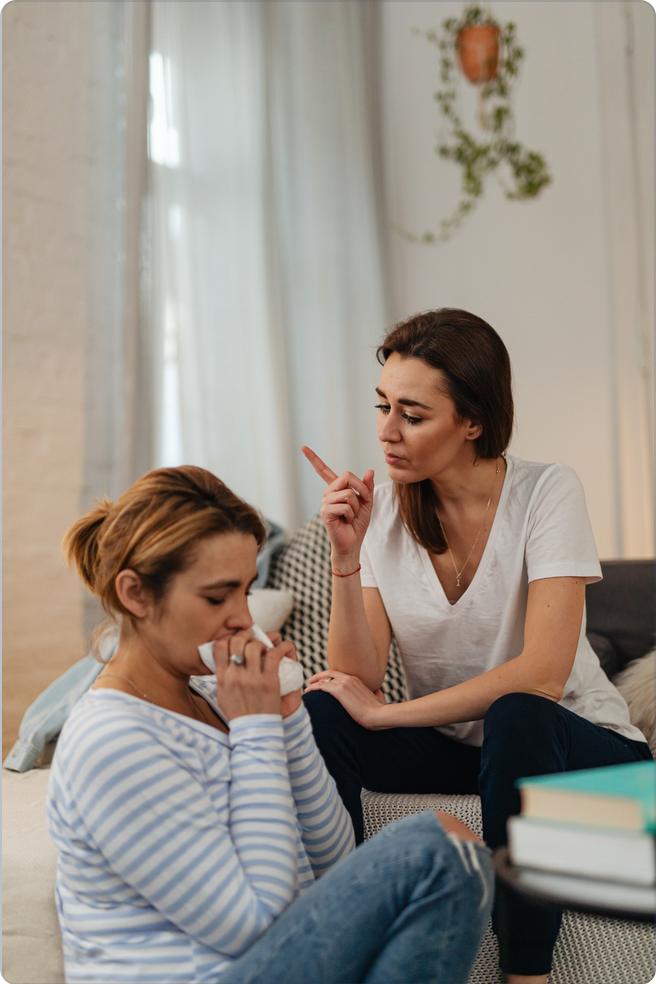
Domestic violence doesn’t pick and choose. No gender or sexual orientation group is free from this happening.
In addition, during the COVID-19 epidemic, IPV incidents escalated due to enforced social isolation or continuous contact between people who would normally be out most of the day at work or school during the lock-downs. A positive outcome of this escalation, if there can be one, is that the reporting and support services for victims of IPV have increased.
Previously, for a victim of IPV in a same-sex relationship, the support resources were often more harmful than staying the relationship, due to stigmatization, or anti-gay sentiments of the service providers. That led to the types of situations that a same sex partner in IPV will stay in or tolerate being much different than those of a straight person seeking help. Great strides have been taken to reduce this problem, yet IPV resources remain different for Queer people. For example, in same-sex relationships, an abuser might weaponize existing homophobic and transphobic systems of stigma, discrimination, and lack of education around LGBTQ+ people to perpetuate their control over and outing their partner at work, school, or to family. For more detail, see the LGBTQ+ Power and Control Wheel, developed by Roe & Jagodinsky, and 16 Myths about Abusive Partners.
Here are a few more examples from the Battered Women’s Support Services of signs that may indicate a toxic or abusive relationship, whether same-sex or straight:
Controlling Behavior
- Monitoring and restricting activities.
- Isolation from friends and family, such as through alienating them away.
- Making decisions without consulting the partner.
Emotional Manipulation
- Guilt-tripping to control behavior.
- Playing the victim to garner sympathy.
- Emotional outbursts to manipulate outcomes.
Gaslighting
- Manipulative tactics to make the victim doubt their reality.
- Denying or trivializing concerns and feelings.
- Creating confusion and undermining self-confidence.
I thank you for having a look at this important but difficult information about relationships. Hopefully, you’re in a healthy relationship and these things may not apply to you; or you may recognize some of these in a way that shows room for improving communication with your partner.
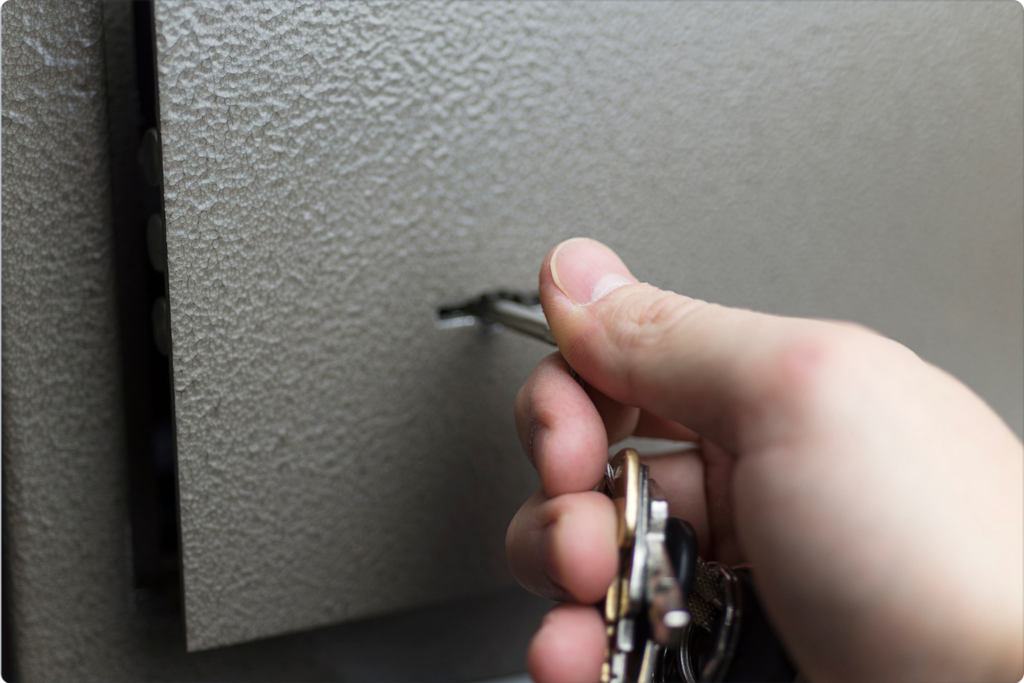
You also may be shocked at seeing some of the items on these lists, too, if you recognize them and have been underplaying their impact in your relationship with somebody.
Control is very subtle but can become a serious form of harm. Is somebody controlling all of the finances, without your consent, to the point where you have no access to funds or even know where or how much there is? Is your partner causing your social circle to shrink, such as by limiting when and how you can leave the home, the use of transportation or money to go out, or are they driving away your family, friends, or colleagues? Victims of IPV may not lose their job, but instead may suffer because of inappropriate boundaries by their partner towards friends, family or colleagues.
Now, please notice your feelings as you peruse the items on the lists I’ve provided. Do some of them resonate with you, or apply to someone you know, who are undervaluing or dismissing such scenarios as okay or normal or enduring them because they are too hard to fix alone? recognize that with this new information comes the power to make changes, through valuing your insights and knowledge.
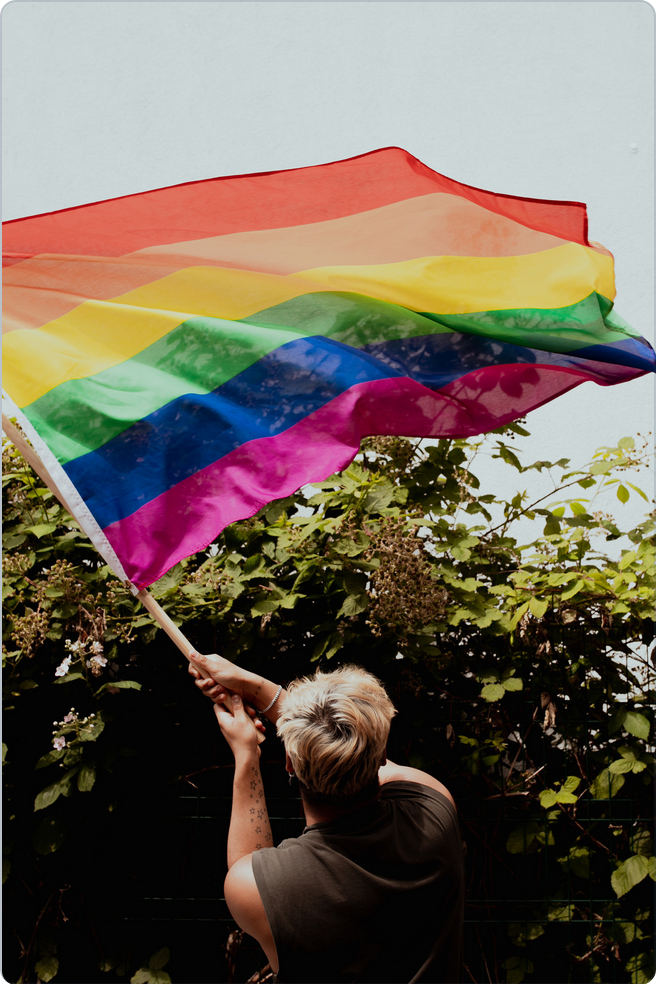
The brave men of Stonewall stopped rationalizing away the acts against them and prevailed. We celebrate their outrage and courage and how it has created safe spaces for people of all genders and sexual orientations. Everyone deserves a good life, regardless of gender or sexual orientation. Take Pride in who you are as an individual and who you are as part of a domestic relationship.
I’m Wishing You All the Best for this Pride Month!
Please enjoy the above resources with links; and may you be blessed with the ability to see what may have been hidden, what has been brought up from below the surface to the light of day.

-
Can Morality be Erotic?
One of the most important books I read during my chaplaincy training was Linda Holler’s Erotic Morality: the role of touch in moral agency. The course was titled after a recent film, “Opening the Hurt Locker”, and it was about what lies inside of us when we experience trauma, and how we decide to respond. In order to appreciate this book, though, my understanding of the word ‘Erotic’ needed some adjusting, even more so the phrase, ‘Erotic Morality’, as a text for a seminary course!
Going back to the course’s theme of ‘trauma’ now. It is important to understand that everyone has a different experience of trauma, and of situations, in general. Thus, no one-size-fits-all therapeutics can adequately predict or create an outcome for those who experience trauma. What is traumatizing for one person may not be for another: for example, I am terrified of horror films, pictures of monsters, and even have to leave the room when ads for these come on the TV. A good friend of mine is the same way, and when we go to the movies and ads for any horror films come on, we cover our ears and dive down behind the seats in front of us. Yes, two adults scared out of their wits over a film trailer! I have considered petitioning the film industry to rate horror film trailers and TV ads the same way that adult films are rated, to protect those of us who cannot tolerate them…
However, a vast number of people, especially adolescents, love this horror genre. In fact, it can be considered a part of developing resilience, to experience terror in a controlled manner (such as in a movie theatre) and stay for the end when it all turns out okay. This is one way we learn to endure fearful situations, and find resolution.
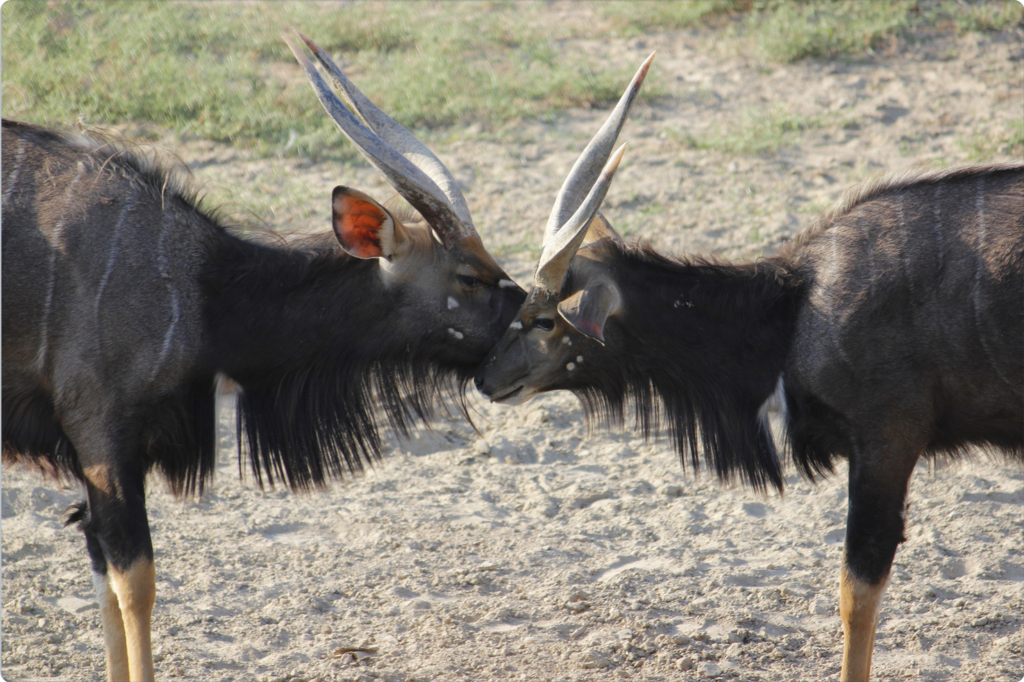
So, why do some people love horror films and others cringe? Experiencing a film is one way of being touched, but not by hands or fingers or toes. Filmmakers know this. Actors know this. But, when I searched for a photo to illustrate ‘touch’ for my newsletter, all of them but two showed humans in some way using their hands and fingers to touch someone or something. Portraying touch this way reinforces a limiting concept of what touch is. I chose two animals communing, instead.

We need to restore our innate, pre-verbal, sense of touch. The way we learned about the world from not only by tactile means, but by sensing love, hurt, relationship, and the eminences of plants, animals, and the energy fields we live in.
What I learned from Holler’s book was very affirming for me as a sensitive person: that my way of touching and being touched is not limited to hands and fingers and toes, but is of an ephemeral nature. When I enter a space, I have an immediate reaction to it that may at times be so strong that it will affect whether I stay in it or not.
In an everyday example, my sensitivity could be an eye-roller when I was uncomfortable or attracted to something that meant nothing to others. Yet, I was used as a gauge of sorts by my family when deciding whether to eat at a new restaurant based upon how I reacted when we entered the establishment. They had observed in their way, that my history of reactions before being seated were close to 100% of being accurate as to whether this was a going to be a good place to eat, or not.
In a professional context, my sensitivity has allowed me to make immediate connections with people and their inner processes in spiritual care counselling, with Nature as a biologist, with others’ physical abilities and limitations as a Tai Chi Chu’an instructor, as a musician when playing in ensemble, and with patterns in world-wide events as a writer.
We name this sort of attunement in various ways: intuition, psychic power, ESP, paranormal abilities, perceptiveness, or as a pathology. My job as a person is to stick with what I experience and disregard the labelling by others.
The beauty of Holler’s book is that it explains, with examples, what is going on when we pay attention to what we are touching or are touched by, at numerous levels. My belief is that we all have these ‘psychic’ powers, but have learned to choose to ignore all but what is tangible and before our eyes or tactile with hands, fingers, and toes.
I invite you to reflect upon your experiences of being touched. You can restore your abilities by various means, such as mentorship with an intuitive guide, or learning mindfulness techniques, for example. There are many modalities for re-learning how to touch and be touched.
The more of us who return to valuing the subtler experiences, the more we are able to appreciate the lives and beliefs of others, and are able to share ourselves and our wisdom with one another.
